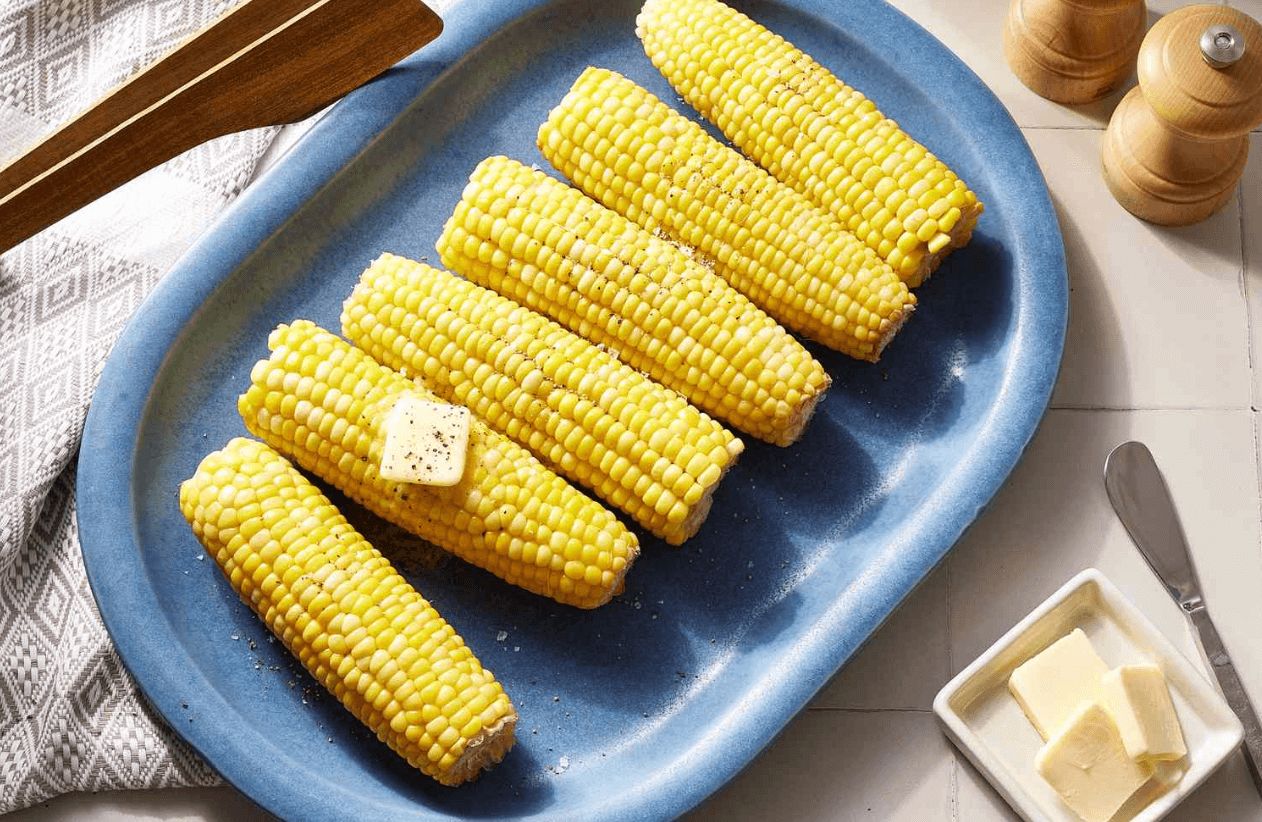- Thriving Guide
- Posts
- What Corn Does to Your Body When Eaten Often
What Corn Does to Your Body When Eaten Often
From supporting digestion to protecting your vision, here's how whole corn impacts your health and what to avoid.

Whether grilled on the cob or air-popped into a crunchy snack, corn is one of the most versatile foods in the world. But how does it really affect your body when eaten regularly? The answer depends on the form you choose.
Whole corn offers fiber, antioxidants, and long-lasting energy. On the other hand, ultra-processed corn products may contribute to weight gain and blood sugar spikes. Here’s what happens to your gut, heart, and more when corn becomes a staple in your diet.
1. It Can Support Digestive Health
Corn is naturally high in fiber, which helps food move efficiently through your digestive tract. Just one cup of cooked corn provides about 4.5 grams of fiber, enough to promote regular bowel movements, support gut microbiome diversity, and ease constipation.
Soluble fiber feeds beneficial gut bacteria
Insoluble fiber adds bulk to stool for smoother elimination
That said, individuals with irritable bowel syndrome (IBS) may find corn harder to digest especially if it's not well-cooked or is consumed in large quantities. Listen to your body and adjust your portions accordingly.
2. It Fuels You with Long-Lasting Energy
Whole corn is rich in complex carbohydrates, which digest slowly and help provide steady energy. Unlike sweetened corn snacks or syrups, it doesn’t lead to quick spikes and crashes in blood sugar.
This makes corn a smart choice for meals or snacks that need to sustain you throughout the day especially when paired with protein or healthy fats.
3. It May Protect Your Vision
Yellow corn contains lutein and zeaxanthin, two antioxidant carotenoids that accumulate in the retina and help protect your eyes from harmful blue light and oxidative stress.
These nutrients may lower the risk of age-related macular degeneration (AMD)
They also support overall eye health, particularly as you age
Research shows diets high in these carotenoids are linked to a 43% lower risk of AMD progression in older adults.
4. It Can Benefit Heart Health
Whole corn contains key minerals like potassium, magnesium, and phosphorus, which play essential roles in heart function.
Potassium and magnesium help regulate blood pressure
Ferulic acid, a natural antioxidant in corn, may reduce inflammation and oxidative damage in arteries
Together, these nutrients can help lower the risk of cardiovascular disease especially when corn is enjoyed in its minimally processed forms.
5. It May Support Better Blood Sugar Control
Corn has a moderate glycemic index (GI), meaning it raises blood sugar more than low-GI foods, but not as much as refined carbs. For most people especially those with diabetes or insulin resistance preparation matters more than the corn itself.
Opt for:
Boiled corn on the cob
Air-popped popcorn (without butter or sugar)
Corn tortillas made from whole corn
These options retain fiber and nutrients while helping avoid sugar spikes.
Corn Is Both a Vegetable and a Grain
Depending on its form, corn can act as:
A starchy vegetable when fresh or frozen (like corn on the cob)
A whole grain when dried (like popcorn or cornmeal)
Both forms can be healthy additions to your meals just watch for added salt, butter, or oils.
Nutrients in Corn That Benefit Your Body
Corn isn’t just filling it’s packed with valuable vitamins and minerals:
Fiber – Supports digestion and calcium absorption
Complex carbs – Offer steady energy without spikes
B vitamins (thiamin, folate) – Aid metabolism and brain function
Magnesium, potassium, phosphorus – Promote bone, nerve, and heart health
Carotenoids (lutein, zeaxanthin) – Protect your eyes from age-related damage
How to Enjoy Corn as Part of a Healthy Diet
To get the best from corn, focus on preparation and balance:
Choose whole forms: Fresh, frozen, or no-salt-added canned corn
Pair it wisely: Combine with lean protein and healthy fats to stabilize blood sugar
Watch your portions: ½ to 1 cup per meal is a good range
Switch it up: Add it to chili, salads, grain bowls, or enjoy it grilled
The Best Types of Corn for Your Health
Stick to these options for maximum nutritional benefit:
Fresh corn on the cob – High in fiber and antioxidants
Frozen whole kernels – Convenient and nutrient-rich
Air-popped popcorn – A whole grain snack with fiber and polyphenols
Whole corn tortillas – A gluten-free, minimally processed option
Homemade corn dishes – Control salt, fat, and added sugar
When Corn Becomes Less Healthy
Processed corn products are often stripped of nutrients and loaded with additives. Try to limit:
Corn-based cereals with added sugar and refined grains
Fried tortilla chips high in salt and fat
Flavored or buttered popcorn loaded with trans fats and artificial dyes
Sugary drinks with high-fructose corn syrup
Puffed cornmeal snacks with excess salt
Creamy frozen corn side dishes high in saturated fat and calories
Regular intake of these can increase your risk of inflammation, weight gain, and blood sugar imbalances. Occasional indulgence is fine just don’t make them daily staples.
Canned Corn and GMOs: What to Know
Canned corn is a fine option if you choose low-sodium or no-salt-added varieties. Rinse before eating to reduce excess starch or sugar.
Genetically modified (GMO) corn is common in the U.S., but studies show it contains the same nutrients as non-GMO varieties.
To get more wellness tips like this, subscribe to our newsletter or share this article with someone who loves learning about food.